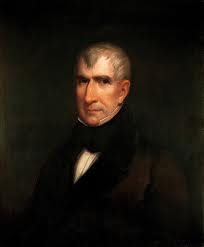 Yup, there’s no such holiday as President’s Day – at least officially. It’s just Congress’ way of making Washington’s birthday fit a three day weekend.(Really – see Section 6103(a) of Title 5 of the United States Code).
Yup, there’s no such holiday as President’s Day – at least officially. It’s just Congress’ way of making Washington’s birthday fit a three day weekend.(Really – see Section 6103(a) of Title 5 of the United States Code).
Washington’s birthday was a major holiday in the U.S. long before the Civil War, it was formalized as a Federal holiday in the 1880’s, it took an act of Congress in the late 1960’s to muddle the waters.
There was a push to move holidays to the Monday schedule we now enjoy. Given the proximity of Lincoln’s and Washington’s birthdays, Illinois tried to roll Lincoln’s Birthday into the already celebrated Washington’s Birthday Federal Holiday.
Since this new holiday, giving us all a three day weekend in the middle of February, would celebrate two prominent former presidents, it was naturally enough labeled ‘President’s Day’.
Who would argue with a day devoted to Washington and Lincoln? Well, Virginia in the mid-1960s for one. The late unpleasantness between the States was only a hundred years passe and Virginia didn’t like the idea of a usurper from Illinois sharing the spotlight with its most visible son. Virginia blocked the proposed bill in the House of Representatives in the discussion stage. It never passed.
The third Monday of February was designated Washington’s Birthday, Lincoln’s Birthday remains as it was – a state by state optional holiday. It has never been a Federal holiday.
Interestingly, Presidents since the 1968 Act don’t seem in a hurry to correct those who refer to President’s Day, opting instead to embrace the all inclusive, let’s celebrate all the Presidents Day. As in, it’s a day celebrating all 44 of us (or does Grover Cleveland get to celebrate twice?), because, hey, all President’s are created equal.
It has become the equivalent of ‘every kid gets a trophy’ – except most kids deserve it. Take, for instance:
Warren G. Harding, he gets a trophy even though he wandered around behind the bench picking daisies while the others played;

William H. Harrison, he only showed up for two practices and one game, but he wanted to be there;
John Tyler …. even though after election he was the other team’s most valuable player . . .
Could do this all day…. but that would be a waste of a nice, sunny, Washington’s Birthday . . .



